Pain, gratitude and a penchant for coconut: Organ donation brings two families together
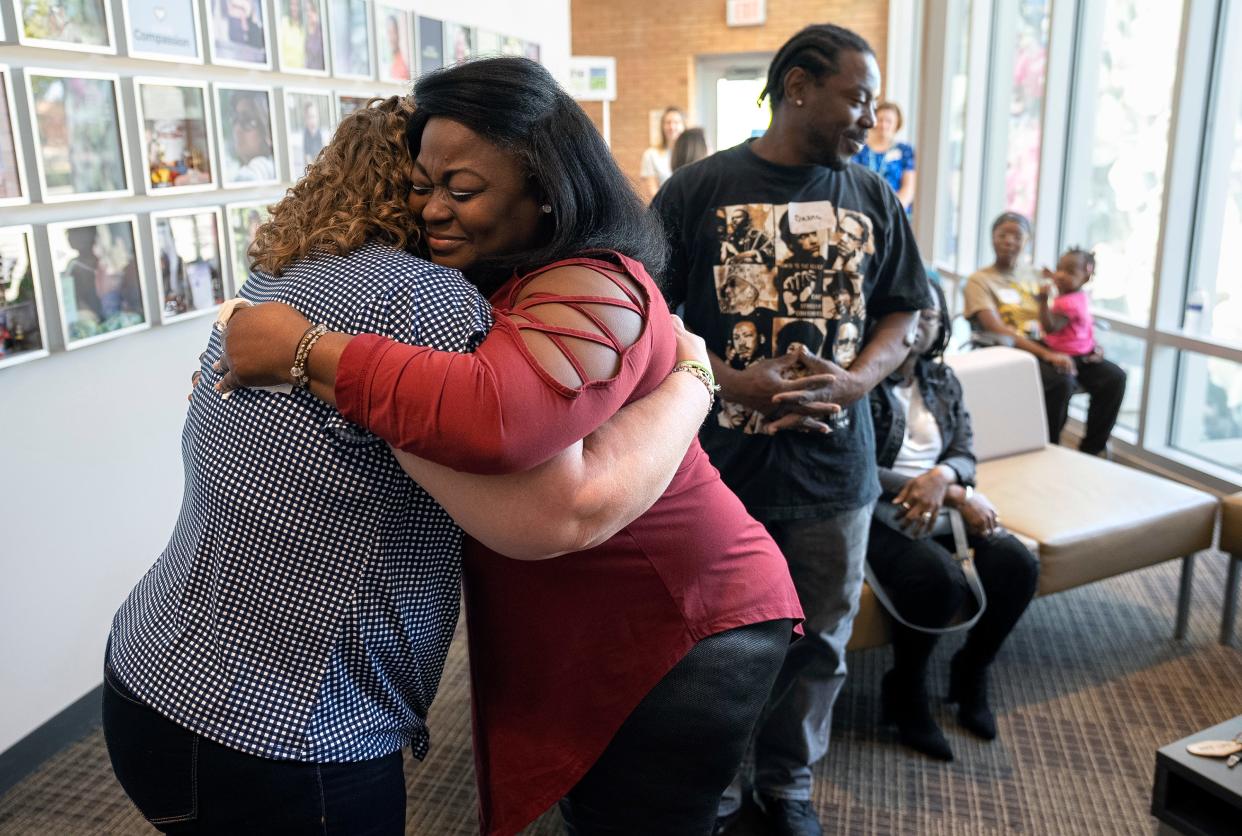
Before meeting in person a woman whose life was inextricably linked with their own, but whom they had never laid eyes on, Ronna Dixon-Young sat her family down for a pep talk.
“Remember what I told you all last night — this woman is part of the family now,” Dixon-Young, of Columbus’ Northeast Side, told her children and grandchildren as they waited Sunday in the lobby of Lifeline Ohio, a Columbus-based nonprofit that facilitates organ, eye and tissue donations.
Moments later, Jess Schnur, who received a liver donation transplant two years ago from Dixon-Young’s late son, DeVille Deonte Morrow, appeared in the hallway.
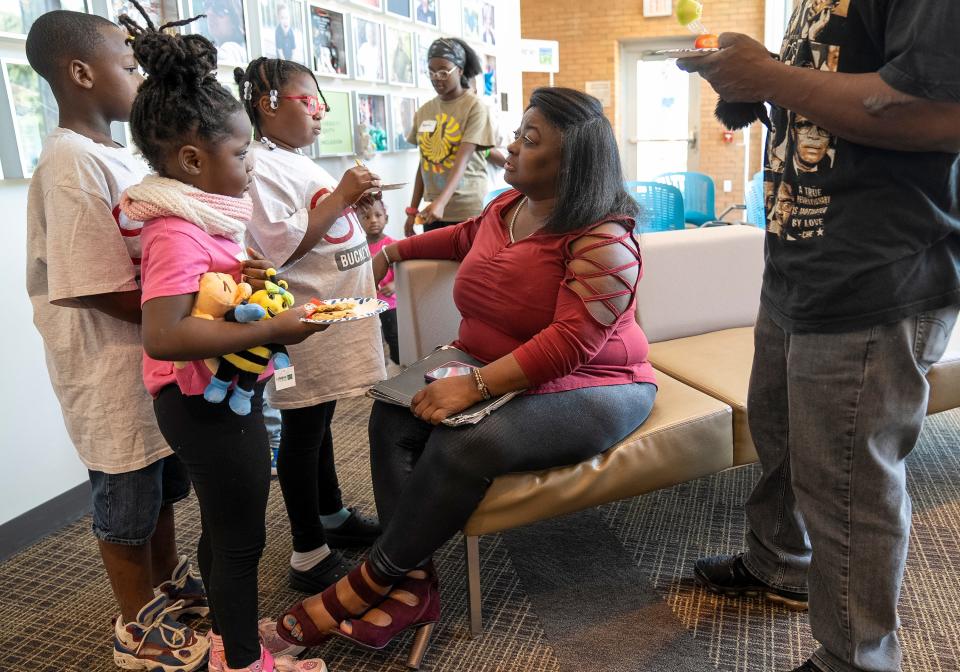
Dixon-Young walked across the room and embraced Schnur in a long, close hug.
“It’s so nice to meet you. I’ve heard so much about you and your family,” said Schnur, wiping back tears. She and Dixon-Young had been corresponding for months, but this was the first time they had met in person.
“Thank you for your letter — it was so heartfelt and so real,” Dixon-Young told Schnur. “Knowing how much DeVille loved life, I know that he would have been happy for this.”
Morrow, 29, was a father of five who had just started his own home remodeling business when he died on Aug. 9, 2021, from an accidental overdose. A registered organ donor, Morrow’s heart, liver and kidneys were procured to save the lives of four people — including Schnur.
Lifeline of Ohio staff arranged the meeting between Schnur and Morrow’s family on Sunday after both parties expressed interest in getting acquainted.
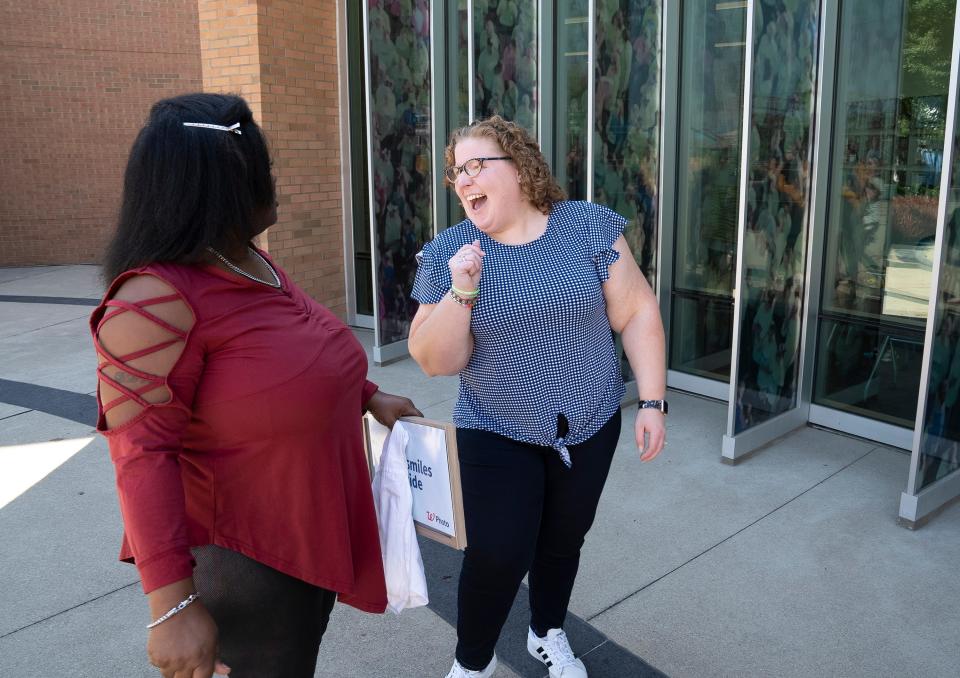
Schnur, 39, is a nurse from Evansville, Indiana, who suffers from an autoimmune liver disease.
“When I first heard about (the donor), I was so excited, but at the same time, I thought, ‘Oh God, that means someone else lost someone they loved,’” Schnur said.
About 700 on organ waiting lists in central Ohio
More than 100,000 people across the U.S. are waiting for life-saving organ transplants, including around 3,000 patients in Ohio and about 700 of those in central Ohio, according to Lifeline CEO Andrew Mullins. The most in-demand organs are kidneys as well as the heart, lungs, liver, and the pancreas.
Lifeline has around 200 staff who match donors with recipients at 90 hospitals across 38 counties in central Ohio, southeastern Ohio and West Virginia.
”We work behind the scenes, facilitating the entire donation process,” said Mullins.
Potential organ donors must have previously registered at a Bureau of Motor Vehicles office or online. Any adult, or minor over the age of 15½, can register (although minors' parents or legal guardians can revoke or amend their authorization for donation), according to Lifeline.
A number of factors play into matching donors with recipients.
“So many things have to align — the blood type, the height, the weight, any infectious diseases the donor or the intended recipient has had — it’s like the moon and the stars have to align for this process to occur,” said Taylor Marshall de Bergás, a family services coordinator with Lifeline.
An accidental fentanyl overdose
On the wall of the Lifeline of Ohio office lobby are dozens of “shadow boxes” — picture frames containing photographs and belongings of organ donors.
Morrow’s shadow box features photographs of him with his five sons, a certificate from a “boot camp for new dads,” a miniature toolbox and toy van with the banner “Tomorrow's Residential Remodeling," his construction business.
Dixon-Young described her late son as a hard worker who “always had a saw or a hammer or a tool on him.”
Morrow’s sister, Kenyatta Williams, said her brother loved children, often taking his own kids and their neighborhood friends on walks to the park.
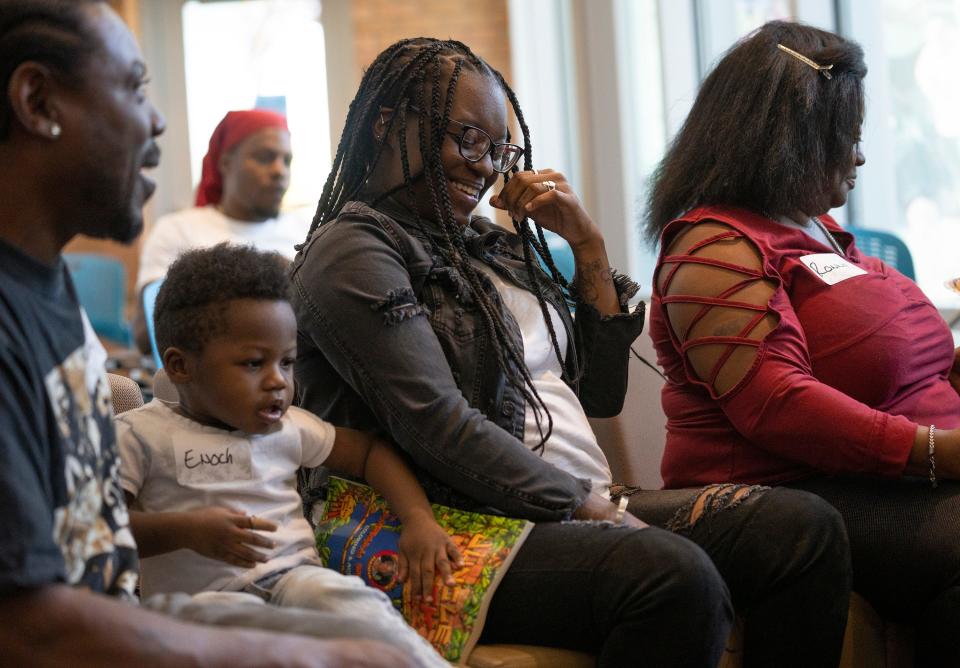
“We’d catch him walking down the street with, like, 10 kids. … He’d give them rides in shopping carts,” Williams said.
Dixon-Young said the family moved to Columbus from Chicago when Morrow was a teenager to escape gang violence.
Morrow died of an accidental fentanyl overdose, according to the Franklin County Coroner's Office. Dixon-Young said her son was not a drug user, but had suffered a shoulder injury at work that left him in severe pain. She said Morrow took fentanyl unwittingly after someone offered it to him, claiming it was a different type of painkiller.
Schnur said that after her recovery, she wrote a long letter to Dixon-Young explaining her illness, which began in 2014, and her immense gratitude to Morrow.
“I had shared with her that I was able to go camping again with my family and be outside and go fishing with my dad,” Schnur told The Dispatch. “My dad and I had always fished together, and we haven't been able to do it for the last five years because I was so sick … I told her that I was getting to meet my new niece that was just being born — all because of Deville."
Misconceptions about donating organs
Only around 50% of adults nationally and 60% of adults in Ohio register to be organ donors, according to Lifeline of Ohio.
“The biggest challenge that we have is the lack of available organs for transplant," Mullins said. "We need more people to make that donation decision so at the time of their death, they can give the gift of life."
Mullins said that a common misconception is that one must be in good physical shape to register.
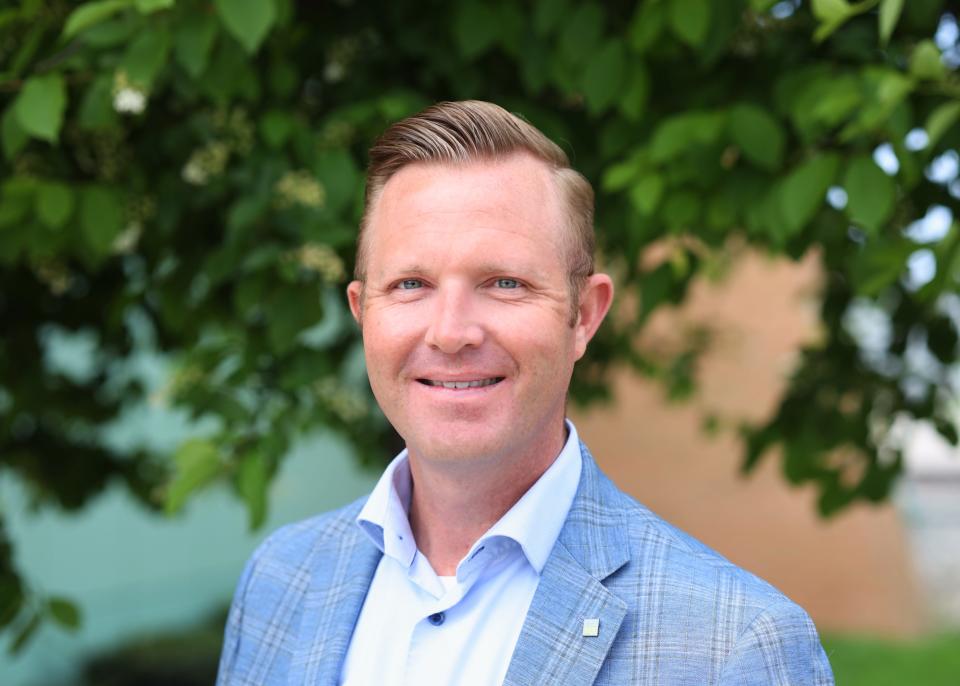
“People self-select and rule themselves out,” he said, adding that this is a problem. “We just ask everyone to register their donation decision. At the time of death, we’ll do the evaluation to determine who is suitable.”
Another common misconception is that organ donation precludes an open-casket funeral, according to Mullins.
“Donation does not impact the look of the individual (for the) viewing,” he explained.
A predilection for coconut
Sitting inside the Lifeline office lobby, Schnur, along with her parents and her husband Brian, listened to Dixon-Young and other family members recount memories of Morrow.
When Morrow’s predilection for coconut came up, Schnur said that she had never liked the flavor until after receiving the liver transplant.
“When I got out of the hospital, the first thing I asked for was, ‘I really just want something with coconut,’” she said.
“Wow!” said Dixon-Young.
Duane Young, Morrow's stepfather, said, “(Morrow)’s in different parts of the world right now. Every time you travel, eat — do whatever — he’s gonna be a part of that.”
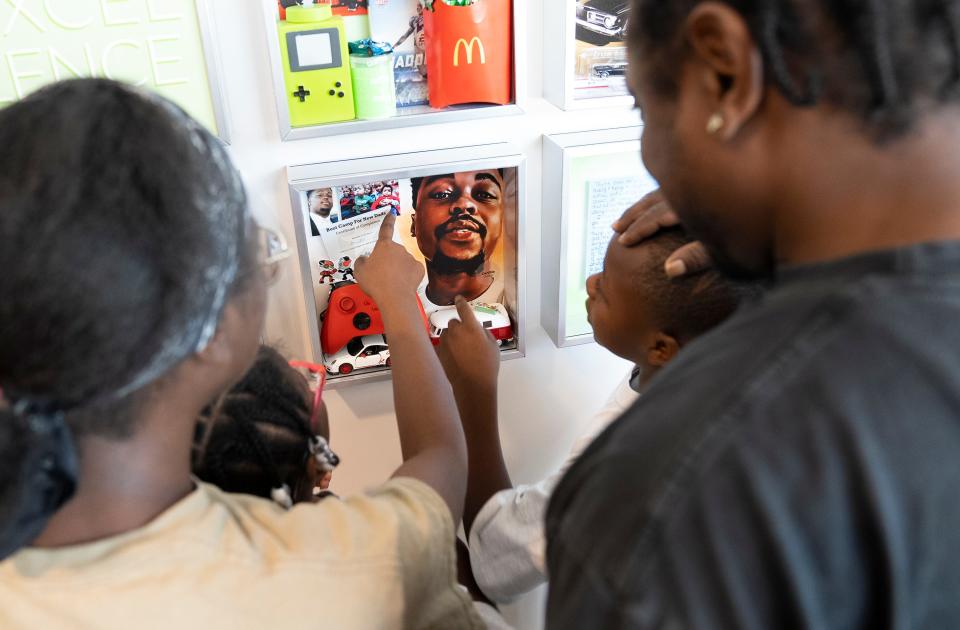
Since recovering from her transplant, Schnur said she has taken a job with Lifeline Ohio, working remotely from Indiana, and also serves as an ambassador for the program by visiting high schools to tell her own story.
“I needed to do something with organ and tissue donation — just to pay it forward,” she said.
Schnur's husband, Brian, said she has taken up pickle ball and they recently went to a Taylor Swift concert in Cincinnati together — something that would have been impossible due to her illness just a few years ago.
Peter Gill covers immigration, new American communities and religion for The Dispatch in partnership with Report for America. You can support work like his with a tax-deductible donation to Report for America at: bit.ly/3fNsGaZ.
pgill@dispatch.com
This article originally appeared on The Columbus Dispatch: Organ donation brings two families together

